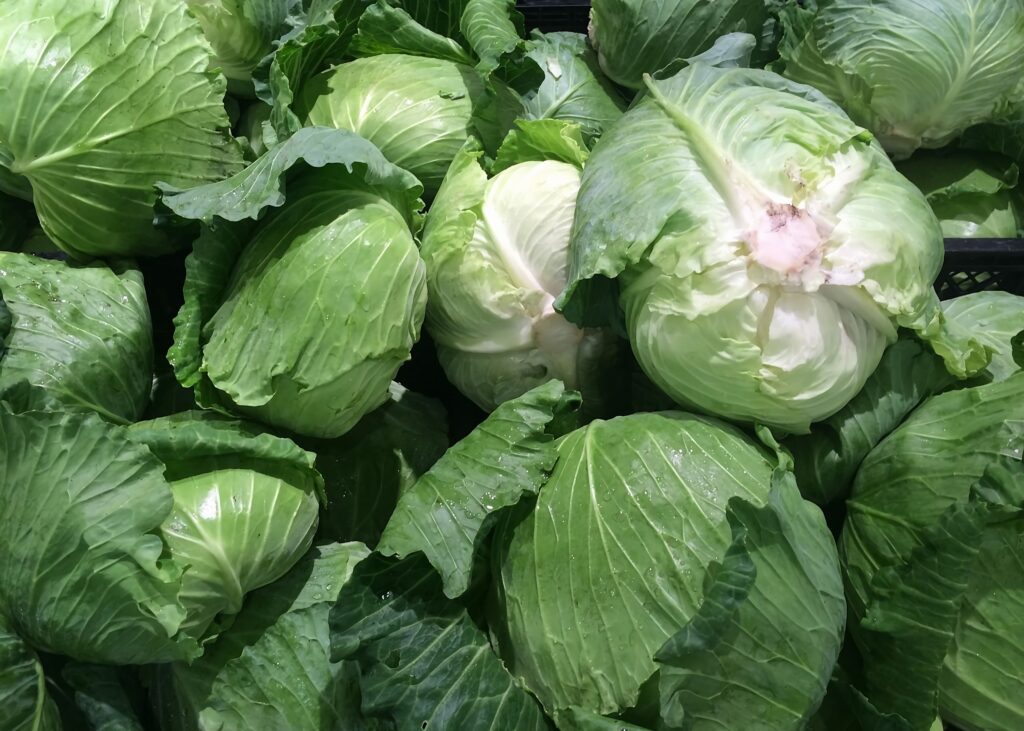Indonesia is emerging as a notable player in the global market for fresh green cabbage. With its fertile soil and favorable climate, Indonesia has the potential to become a leading exporter of this nutritious vegetable. In 2024, the export of fresh green cabbage presents promising opportunities and notable challenges that stakeholders need to navigate. This article provides an in-depth look at the dynamics of this industry, exploring its potential and the obstacles that must be addressed.
Opportunities in Fresh Green Cabbage Exports
- Favorable Growing Conditions
Indonesia’s tropical climate and fertile volcanic soil are ideal for growing green cabbage. Regions like Central Java, particularly Banjarnegara, have optimal conditions for cabbage farming, resulting in high-quality produce. - Rising Global Demand for Healthy Foods
The global trend towards healthier eating habits has increased the demand for fresh vegetables, including green cabbage. Countries in Asia, Europe, and the Middle East are particularly interested in importing high-quality, fresh produce to meet consumer demands. - Year-Round Production
Unlike many other countries that have seasonal limitations, Indonesia can produce green cabbage year-round. This continuous supply capability provides a competitive advantage in maintaining a steady flow of exports throughout the year. - Economic Benefits for Farmers
Exporting green cabbage can provide significant economic benefits to local farmers. By tapping into international markets, farmers can achieve higher profit margins compared to domestic sales, improving their livelihoods and boosting the local economy.
Challenges in Fresh Green Cabbage Exports
- Maintaining Freshness and Quality
Ensuring that green cabbage remains fresh and retains its quality during transport is a significant challenge. Proper post-harvest handling, efficient cooling systems, and timely logistics are crucial to prevent spoilage and maintain the vegetable’s marketability. - Compliance with International Standards
Exporting fresh produce requires adherence to stringent international quality and safety standards. This includes certifications such as Good Agricultural Practices (GAP) and phytosanitary measures to prevent the spread of pests and diseases. - Logistics and Transportation
Efficient logistics are essential to transport fresh green cabbage from farms to international markets. The perishable nature of the product necessitates rapid and reliable transportation solutions, including cold chain logistics to ensure freshness upon arrival. - Competition from Other Exporting Countries
Indonesia faces competition from other major green cabbage exporters, such as China, the United States, and several European countries. Competing effectively requires consistent quality, competitive pricing, and strong market relationships.
Strategic Steps for Enhancing Exports
- Investment in Post-Harvest Technology
Investing in advanced post-harvest technology can significantly reduce spoilage and improve the quality of green cabbage. Technologies such as vacuum cooling, modified atmosphere packaging, and refrigerated transport are essential for maintaining freshness. - Strengthening Supply Chain Management
Strengthening the supply chain from farm to export markets is crucial. This includes improving farming practices, enhancing farmer training programs, and establishing efficient collection and distribution centers to streamline the export process. - Market Diversification
Diversifying export markets can reduce dependency on a few key buyers and spread risk. Exploring new markets in Africa, South America, and other regions can open new opportunities for growth and expansion. - Branding and Certification
Building a strong brand identity and obtaining relevant certifications can enhance the reputation of Indonesian green cabbage in the global market. Certifications such as GlobalGAP, organic certification, and HACCP can attract premium buyers and assure consumers of product quality and safety.
Conclusion
The export of fresh green cabbage from Indonesia in 2024 holds substantial promise, driven by favorable growing conditions, rising global demand, and year-round production capabilities. However, to fully capitalize on these opportunities, stakeholders must address challenges related to maintaining freshness, compliance with international standards, efficient logistics, and competition. By investing in technology, strengthening supply chains, diversifying markets, and enhancing branding, Indonesia can establish itself as a leading exporter of fresh green cabbage, benefiting local farmers and contributing to the nation’s economic growth.





dark web marketplaces dark market url